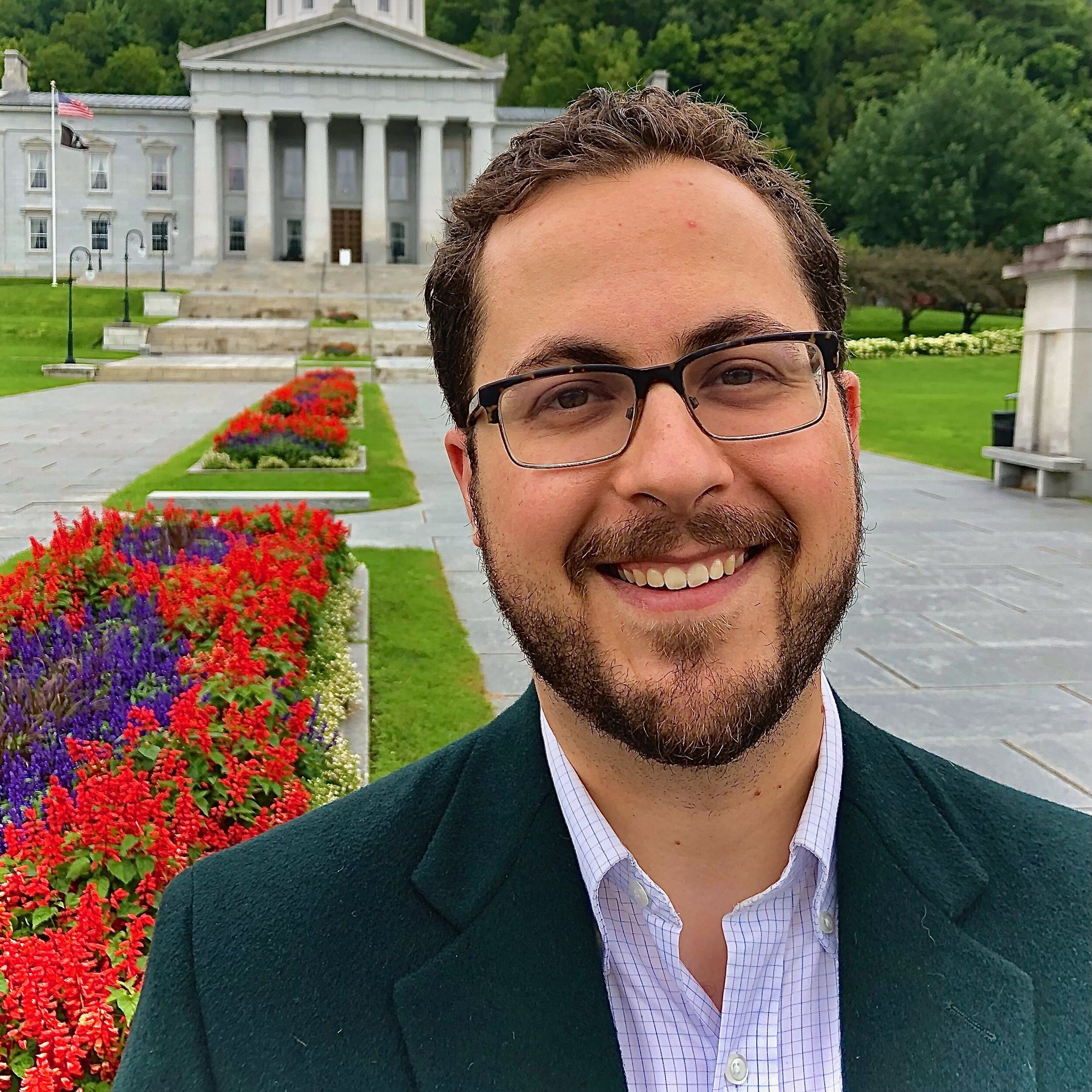Each winter, the Legal Food Hub runs a free webinar series to help inform farmers, food entrepreneurs, and food and farm organizations about important legal topics relevant to their businesses.
Watch recordings of all four Winter Webinars below or in our Resource Library.

February 15: Cooperatives
Attorney Erika Dunyak, Vermont Law and Graduate School
Cooperatives as a business structure help maximize resources and distribute profits equally among members. They can also foster a strong community since members work and vote alongside each other. Join this session to learn about the different types of cooperatives and what to consider before filing.
About Erika Dunyak (click to expand)
Erika Dunyak is a staff attorney at the Vermont Law and Graduate School’s Center for Agriculture and Food Systems. Her work focuses on (1.) the nexus of food systems and business law and (2.) perennial beverage regulation, especially of wine and viticulture. Erika’s career has spanned academia and private practice. In private practice, Erika worked with Jason Wiener, p.c, a boutique social enterprise law firm, where she helped clients make practical and legally compliant decisions related to formation, financing, commercial relationships, and dissolution. Erika works with all types of entities but has a particular love of cooperative

February 22: Agricultural Labor Laws
Attorney Sean Fontes, Partridge Snow & Hahn
Understanding guidelines for classifying employees (intern, part-time, seasonal, full-time, etc.) is important for remaining in compliance with labor laws. Join Attorney Sean Fontes to learn about employee rights, benefits, minimum wage, pay equity, and overtime for different employee types. This session is informational for employers at all stages of hiring but especially for first-time employers.
About Sean Fontes (click to expand)
Sean M. Fontes, Esq. is Counsel in the Employment Law Practice Group. Attorney Fontes led the Legal Division at the Rhode Island Department of Labor and Training for 12 years, serving under three administrations. In addition to his position at the DLT, Attorney Fontes led a private practice servicing clients in Massachusetts and was an adjunct professor at Roger Williams University, teaching employment and labor law.
Attorney Fontes is a graduate of Boston College Law School, licensed to practice law in Massachusetts, Rhode Island, and New York. He has over 19 years of legal experience in labor and employment law, civil litigation, corporate law, and intellectual property law and is a frequent lecturer on current topics in labor and employment law.
Attorney Fontes also holds an Executive Leadership Certificate from Harvard Kennedy School of Government and holds government and private board appointments for the Town of Randolph Zoning Board of Appeals, Town of Randolph Redevelopment Authority, Thurgood Marshal Law Society, the Boston College Black Alumni Network,
and the Boston College Law School/Rappaport Center for Law and he is a member of the Sigma II class of Leadership Rhode Island and also serves on the Board of Governors for Leadership Rhode Island.

February 29: Easements
Andrew Marchev, Christina Reiter, and Veronica Gassert; Three Rivers Law
Easements on a piece of property significantly influence how land can be used. Attorney Andrew Marchev and Veronica Gassert present the different types of easements and common conditions found in each.
About Andrew Marchev (click to expand)
Andrew represents a wide array of clients, including farmers, food entrepreneurs and working lands enterprises. Andrew assists clients with wills, probating estates, landlord-tenant issues, land use and general civil litigation. He also helps clients with farm succession planning, which often requires creating a business entity and transferring land. Additionally, Andrew has helped clients with navigating land conservation regulations, and with legal compliance generally.
In addition to his practice experience, Andrew brings knowledge gained from his work with the Vermont Law School’s Center for Agriculture and Food Systems, with the Vermont Housing and Conservation Board, and as a field hand for Schoolhouse Farm.

March 7: Branding Best Practices
Christina Licursi, Wolf Greenfield
As a small business owner, you want to develop and protect your brand, but you don’t yet have the funds to file for trademark protection. Attorney Christina Licursi covers steps you can take to have some level of protection from the beginning as well as when to take the plunge and file for protection.
About Christina Licursi (click to expand)
Christina Licursi focuses her practice on global portfolio management, counseling, and advising clients on a wide range of intellectual property matters, including branding strategies and protection, trademark and copyright infringement matters, licensing issues, and domain name disputes. With over a decade of experience, Christina has demonstrated experience in connection with developing, using, registering, licensing, and enforcing trademarks and copyrights. Her experience encompasses both trademark prosecution and litigation, including representing clients in federal courts across the country and before the US Patent and Trademark Office’s Trademark Trial and Appeal Board (TTAB). In addition to trademark matters, she also handles various copyright issues, domain names and related disputes, and social media and internet matters.
